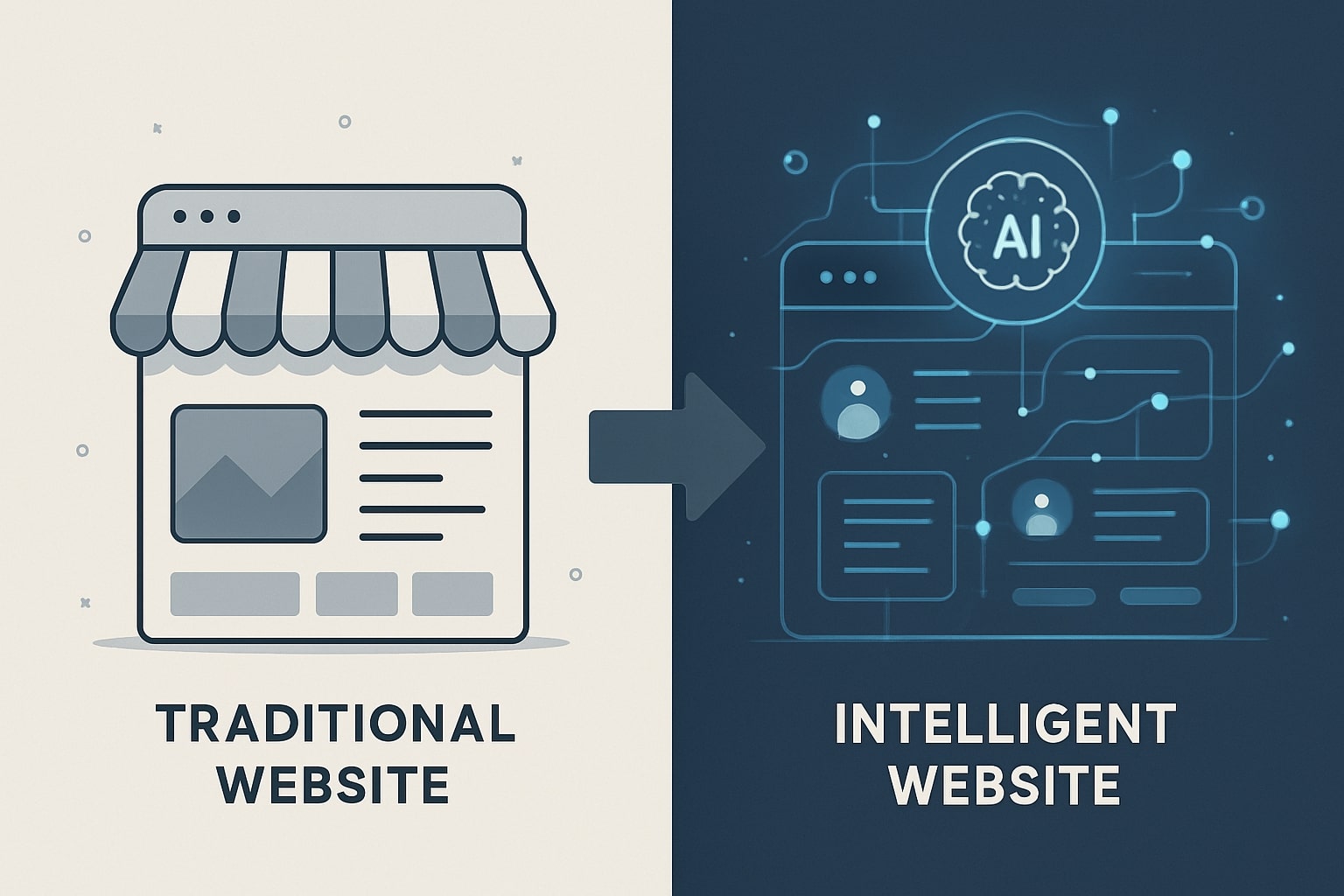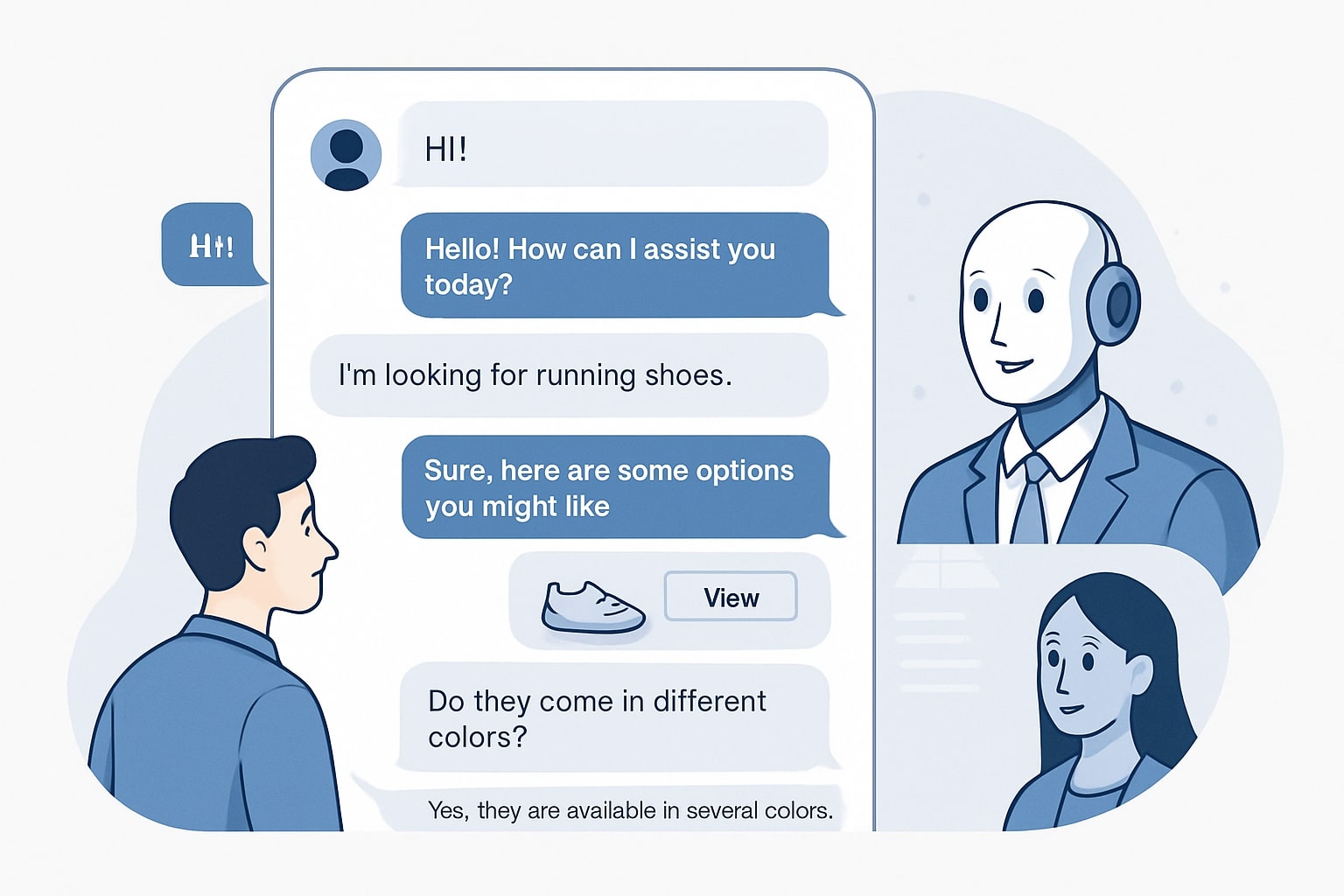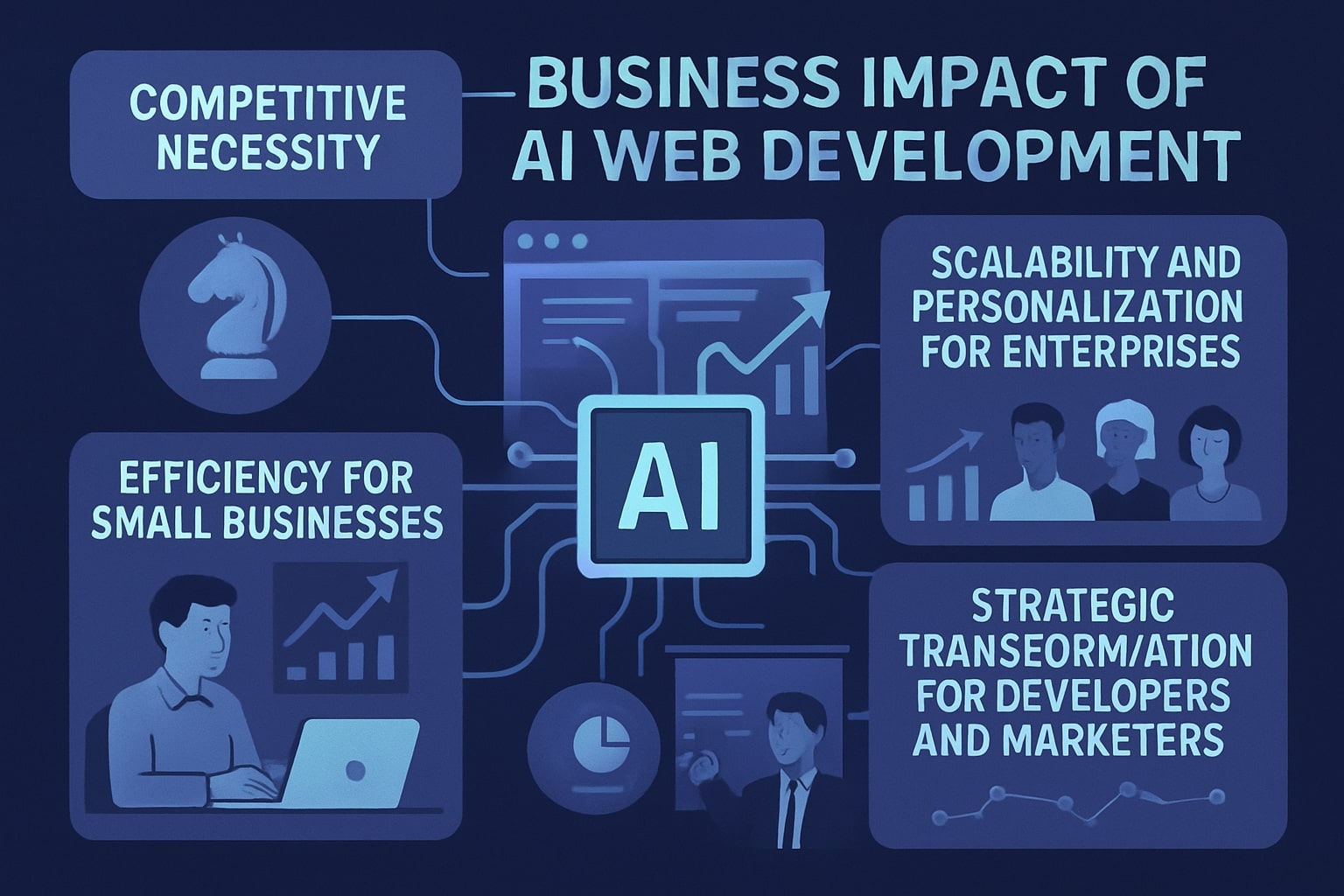KSOFT
In 2025, websites have evolved from static brochures to dynamic, intelligent digital salespeople. With the integration of artificial intelligence (AI), businesses are experiencing a paradigm shift in how they design, develop, and manage their online presence. From generative design to predictive user journeys and AI-enhanced SEO, websites now possess the capability to think, adapt, and sell.
Welcome to the era of intelligent web experiences. Let's delve into how the latest AI trends are revolutionizing websites and unlocking smarter sales for businesses worldwide.
Traditional websites functioned like well-decorated storefronts—visually appealing but requiring constant human intervention for updates, performance optimization, and user engagement.
AI is transforming this landscape. With real-time behavior tracking, personalized content delivery, and automation at every level—from design to analytics—websites are evolving into intelligent systems. These smart websites:
The outcome? Faster conversions, higher engagement, and more satisfied visitors.

One of the most exciting trends in 2025 is the use of generative design in web development. AI tools like Framer AI, Wix ADI, and Durable can now create entire websites from just a few user inputs—brand name, industry, and a short description.
Here's how they operate:
This approach not only accelerates development but also lowers entry barriers for small businesses and startups.
Static user experiences are obsolete. Modern websites must adapt on the fly to each visitor. Utilizing real-time analytics and machine learning, AI tools like Dynamic Yield and Optimizely AI deliver hyper-personalized experiences by:
For instance, an e-commerce store can now display different homepage content to a student from California versus a working professional from Berlin. This level of personalization leads to better engagement and stronger conversions.
In 2025, AI chatbots have evolved beyond reactive FAQ bots into proactive sales assistants. Conversational AI powered by ChatGPT, Google Bard, or custom-trained large language models (LLMs) assists websites in:
Some platforms further enhance user interaction by integrating AI avatars using tools like Synthesia, D-ID, or HeyGen. These virtual agents greet users, explain services, and even mimic human emotions to build trust.

The future is voice-enabled. With the proliferation of Siri, Alexa, and Google Assistant, optimizing websites for voice search has become a key trend. AI tools assist developers in:
Additionally, websites are being designed to respond to voice commands directly. For example, a visitor can say, “Show me your best-selling product,” and the AI assistant instantly responds with a visual carousel.
AI-driven content generation tools are reshaping how businesses create blogs, landing pages, and product descriptions. Platforms like Jasper, NeuronWriter, and SurferSEO enable:
It's not limited to text—AI video tools like Pictory, Runway, and Lumen5 can transform blog posts into explainer videos or animated guides for enhanced visibility.
These innovations help websites rank higher, drive organic traffic, and save time and money in content production.
Imagine a website that anticipates your exit and presents a discount pop-up just before you close the tab.
That's predictive UX, powered by behavioral analytics and AI heatmaps. Tools like Hotjar AI, FullStory, and Crazy Egg now:
This data-driven approach minimizes guesswork and allows websites to react like seasoned salespeople—understanding what each visitor needs before they even ask.
Traditional A/B testing is often slow and data intensive. In 2025, AI will make it more efficient and intelligent.
Tools like VWO AI and Adobe Sensei:
This enables businesses to implement high-converting changes in real-time without waiting weeks for statistically significant results.
Page speed and cybersecurity are now non-negotiable. Fortunately, AI is enhancing both.
Here's how:
These tools make websites not only smarter but also faster and more secure—building user trust and boosting SEO.
As AI continues to evolve, we're heading into a future where websites are autonomous and self-improving.
Upcoming trends include:
The convergence of AI and web development is no longer a luxury—it's a competitive necessity.
For startups and small businesses, AI eliminates the need for a large team to manage content, optimize conversions, and respond to customers.
For enterprises, it offers scale, personalization, and insights that can drive significant revenue.
For developers and marketers, it transforms how strategies are built, tested, and executed.
Ultimately, websites powered by AI are becoming living systems that evolve with users, ensuring relevance, engagement, and growth.

In 2025, the question isn't whether you need a website. It's whether your website is smart enough to deliver results.
AI is redefining what's possible—creating websites that listen, learn, and lead users to the right outcomes.
If you're ready to elevate your online presence, now is the time to invest in an AI-powered digital experience.
Don't just build a site. Build a smart
For startups and small businesses, AI eliminates the need for a large team to manage content, optimize conversions, and respond to customers.
For enterprises, it offers scale, personalization, and insights that can drive significant revenue.
For developers and marketers, it transforms how strategies are built, tested, and executed.
Ultimately, websites powered by AI are becoming living systems that evolve with users, ensuring relevance, engagement, and growth.
